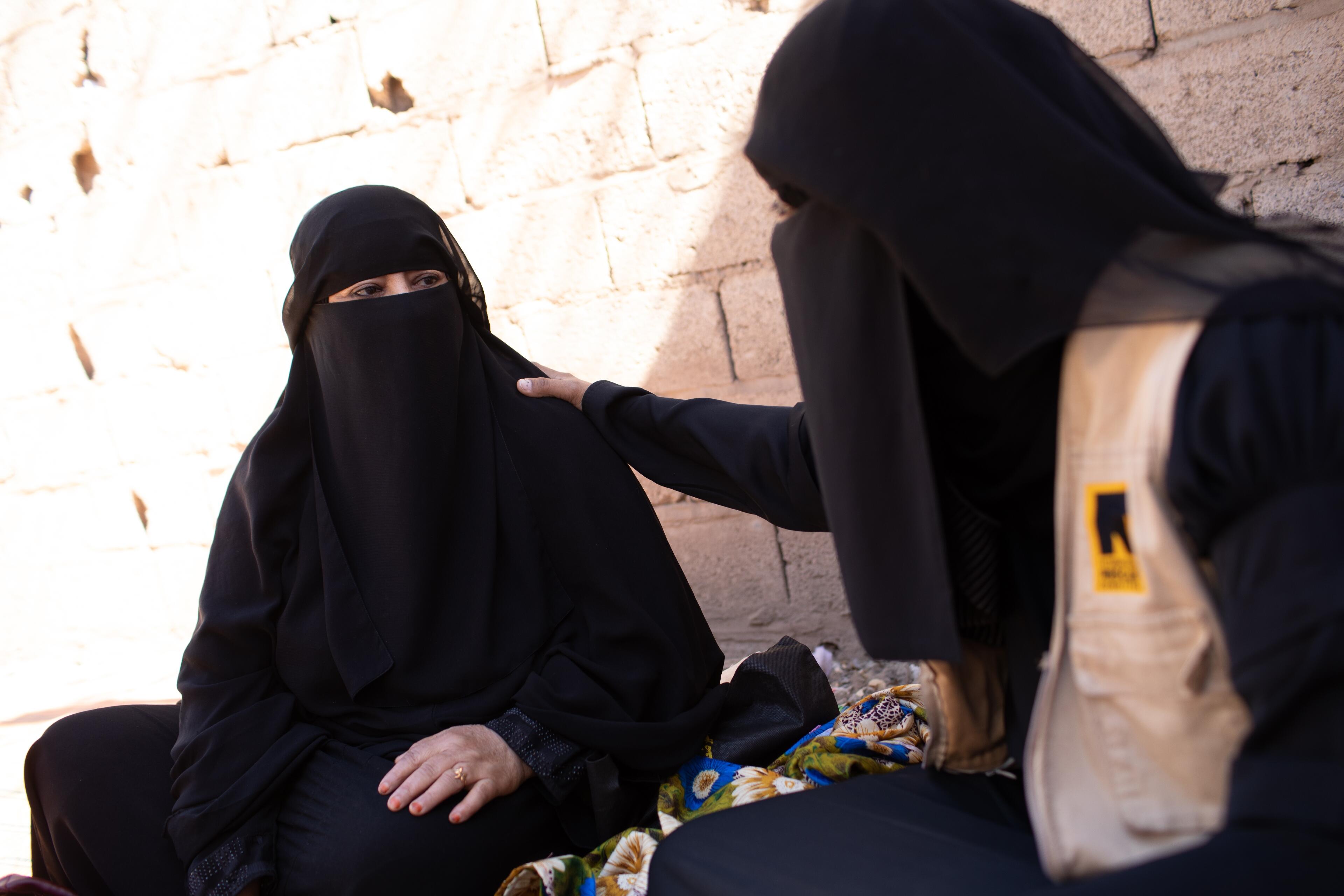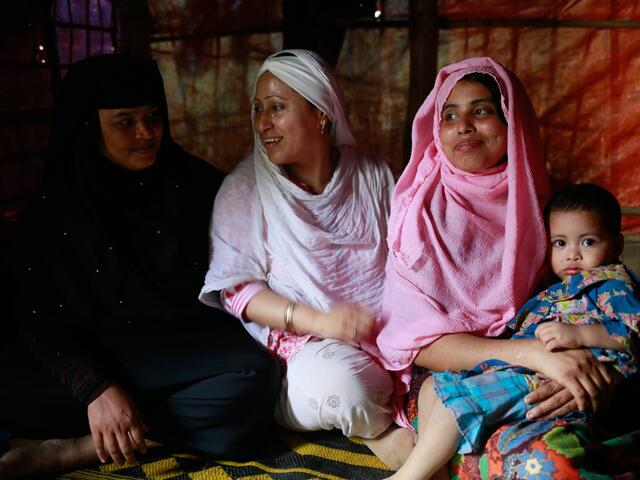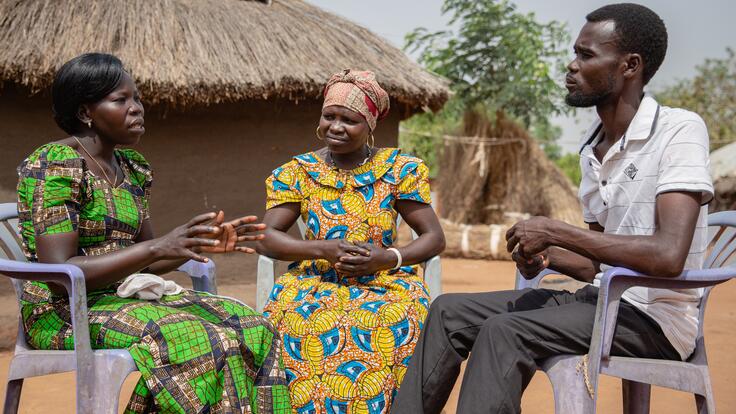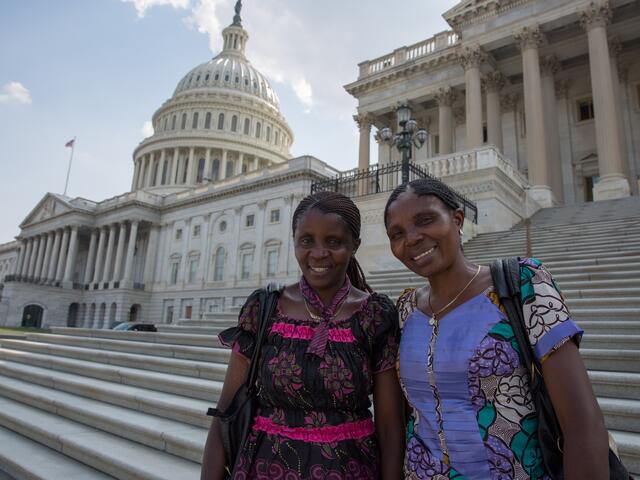
Reports of violence during the COVID-19 pandemic have increased, as many women and girls were locked down in their homes with their abusers, isolated from support networks and services.
The International Rescue Committee (IRC) is calling attention to the violence women and girls around the world experience on a daily basis, and working to end it.

Here are four facts you need to know:
- Whenever and wherever a crisis hits, violence against women and girls increases. The global COVID-19 crisis is just one example: In a recent analysis by the IRC, 73% of women living in some of the most forgotten crisis settings reported an increase in domestic violence, 51% cited sexual violence, and 32% have seen an uptick in child and forced marriage since the start of the pandemic.
- Women and girls living in war zones and crisis areas are especially at risk, but not enough resources are put behind ending violence against women and girls. Despite the many speeches on the need to prioritize their safety, action falls short. Less than 1% percent of humanitarian funding worldwide goes toward programs to prevent and respond to gender-based violence.
- There are tangible things that can be done to help turn the tide of violence. For example, there are tried and tested ways to make refugee camps and communities in conflict and crisis safer places for women and girls, and to provide care and support to survivors. However, many local organizations and other front-line responders have seen funding for these lifesaving services dry up.
- Refugee women and girls themselves need to be at the table when decisions are made, or their priorities for safety and wellbeing will continue to be marginalized. Thanks in large part to the ingenuity of women-led organizations working in their communities, many female-only safe spaces have now been able to reopen or adapt by providing digital support services during the pandemic.
While every year it is gut-wrenching to see the numbers and read how many women and girls have been killed, hurt, or discriminated against, this year, the outlook is especially grim.

Here’s what you can do to help:
There are several ways we can all help to create a safer and more equitable world for women and girls. We need to hold governments and humanitarian agencies accountable for their commitments on gender equality. They need to be more transparent about how much aid money is being spent to support the safety, resilience, and wellbeing of women and girls—including those also facing discrimination on the basis of their age, sexuality or ethnicity.
We also can reach out to local organizations that assist survivors of violence and work with our own communities to prevent violence in the first place.

Speak out - Call this issue to the attention of politicians and decision-makers. Tell your representatives that you support campaigns like the United Nations Unite Campaign and want them to support refugee women and girls around the world.
Get involved - Volunteer for crisis hotlines or provide items to local women’s shelters based on actual needs, such as toothbrushes, feminine hygiene products, underwear and cell phones.
Give what you can - Donate to organizations such as the IRC that work with local women-led organizations to tackle the root cause of violence—gender inequality—and not just the symptoms.
“The sheer magnitude of the problem may seem overwhelming,” says Nicole Behnam, “but if we all truly prioritize gender equality in this fight to end violence, then we will soon no longer need 16 Days.”
Learn more
The IRC has raised the alarm about gender-based violence during emergencies for decades. Explore our work in gender equality and violence prevention and response.
Visit UN Women to learn about the annual 16 Days of Activism against Gender-Based Violence campaign.
If you are in the United States and you or someone you know needs immediate assistance, please call RAINN’s National Sexual Assault Telephone Hotline at +1 800 656 HOPE (4673).